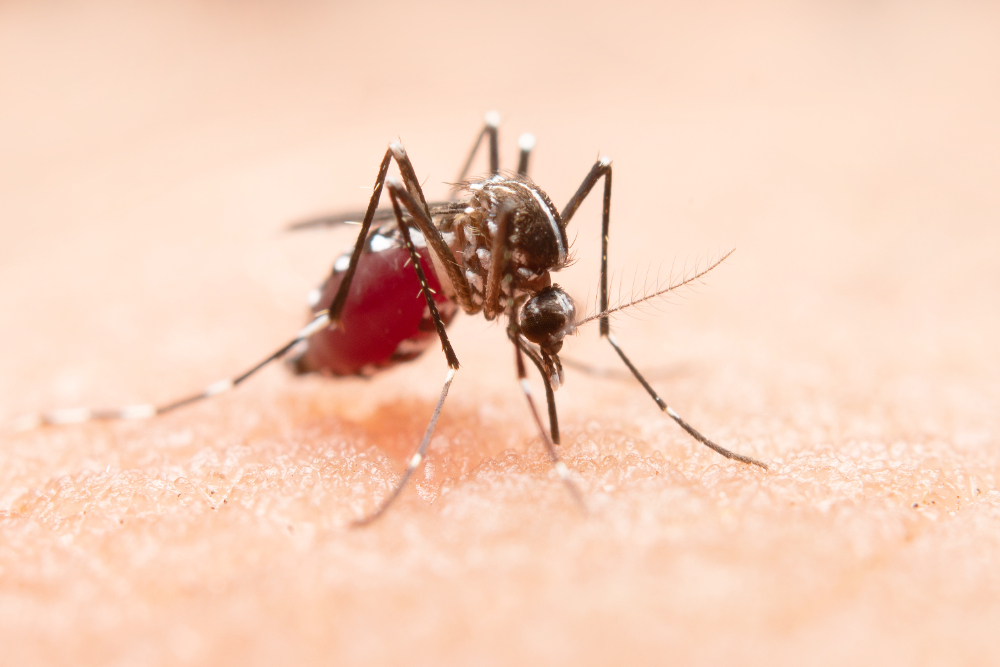Breaking Down Dengue: How to Fight the Bite

Dengue fever, often called "breakbone fever," is a viral illness spread to humans through mosquito bites. Nearly half of the world's population faces the risk of dengue fever, a disease responsible for an estimated 100–400 million infections every year. Endemic to tropical and subtropical regions, dengue is prevalent in urban and semi-urban environments. While many individuals infected with the virus experience no symptoms or only mild illness, severe cases can arise, potentially leading to fatalities.
Transmission
The dengue virus is transmitted to humans through the bites of infected female mosquitoes, primarily the Aedes aegypti mosquito. Once the dengue virus has entered an infected person's body, it replicates in the mosquito midgut before spreading to secondary tissues, including the salivary glands. Following this process, the mosquito transmits the virus to another host, where it can replicate further.
Symptoms
The majority of individuals infected with dengue virus exhibit minimal or no symptoms and typically recover within 1–2 weeks. In rare instances, dengue can manifest in a severe form that may result in mortality. In the event of symptoms manifesting, they typically emerge between 4-10 days following infection and persist for 2-7 days. The following symptoms may be observed:
- High fever (40°C/104°F)
- Severe headache
- Pain behind the eyes
- Muscle and joint pains
- Nausea
- Vomiting
- Swollen glands
- Rash
The symptoms associated with dengue can rapidly escalate, with severe dengue cases manifesting within just a few hours. This rapid progression underscores the critical nature of dengue, classifying it as a medical emergency. Approximately one in twenty individuals infected with dengue will progress to severe dengue, which can lead to shock, internal bleeding, or even death.
The warning signs of severe dengue typically emerge within 24–48 hours after the fever subsides. If these warning signs are observed, immediate medical attention should be sought at a local clinic or emergency room. Such signs may include, abdominal pain or tenderness, vomiting at least three times within 24 hours, bleeding from the nose or gums, vomiting blood, or the presence of blood in the stool. Other symptoms requiring medical attention include extreme tiredness, restlessness, or irritability.
Prevention
To prevent mosquito breeding, manage and modify the environment by properly disposing of solid waste and removing water-holding artificial habitats. Regularly clean, cover, and empty domestic water storage containers, and use suitable insecticides in outdoor water storage to control mosquito populations.
In the case of a dengue infection, it is crucial to rest, stay hydrated by drinking plenty of fluids, and manage pain with acetaminophen (paracetamol). Avoid non-steroidal anti-inflammatory drugs, such as ibuprofen and aspirin, as they may worsen the condition. Additionally, monitor for severe symptoms and consult a physician immediately if any are observed.
To effectively combat dengue, vaccination should be integrated into a comprehensive disease control strategy that includes mosquito management, timely and effective treatment of cases, community education, and active participation from the public. Mosquito control is a cornerstone of any dengue prevention program, as the same mosquitoes that transmit dengue also spread other serious viruses like yellow fever, chikungunya, and Zika.
Source:
World Health Organization. Dengue and Severe Dengue. 2024
World Health Organization. Vaccines and immunization: Dengue. 2024
Mayo Clinic. Dengue Fever
Centers for Disease Control and Prevention. Dengue. 2024
 ID
ID
 EN
EN



